Question And Answer
Publications
Articles, publications, books, tools and multimedia features from the U.S. Institute of Peace provide the latest news, analysis, research findings, practitioner guides and reports, all related to the conflict zones and issues that are at the center of the Institute’s work to prevent and reduce violent conflict.
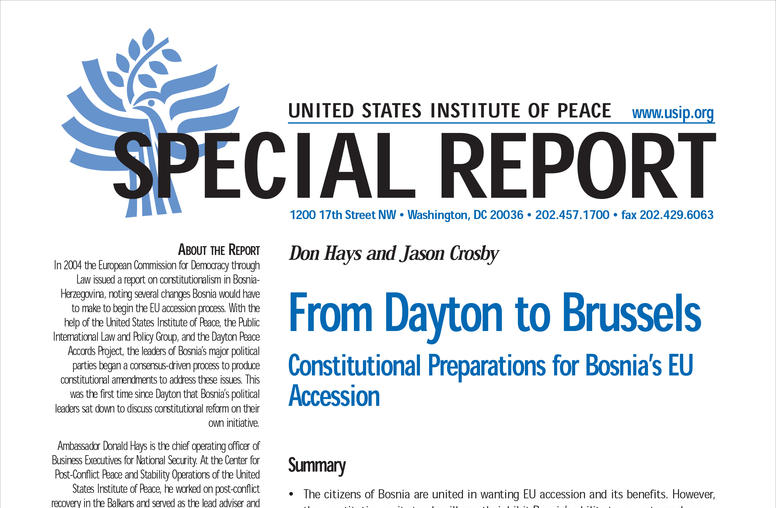
From Dayton to Brussels: Constitutional Preparations for Bosnia's EU Accession
The citizens of Bosnia are united in wanting European Union accession and its benefits. However, the constitution as it stands will greatly inhibit Bosnia's ability to move toward accession. What are the changes Bosnia needs to make in order to being the EU accession process?
Balkans Progress: Who Stands in the Way?
Daniel Serwer testified before the Commission on Security and Cooperation in Europe: Hearing on Human Rights, Democracy and Integration in South-Central Europe on the current situation in Bosnia, Serbia, and Kosovo, and on why none has established a firm foundation for peace after years of conflict.

Engineering Peace
In this timely work, Colonel Garland Williams analyzes the postconflict reconstruction gap in three case studies—Bosnia, Kosovo, and Afghanistan—and shows how military engineering brigades accompanying peacekeeping contingents can be put to use immediately after the conflict ends to restore vital infrastructure and social institutions.
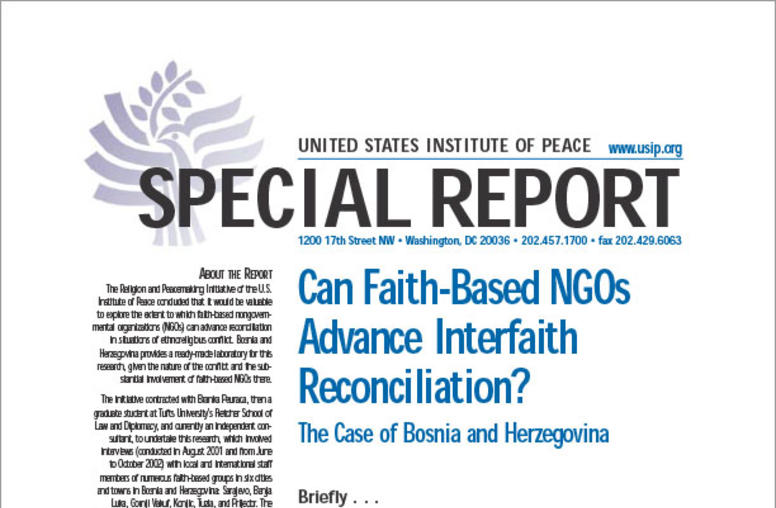
Can Faith-Based NGOs Advance Interfaith Reconciliation? The Case of Bosnia and Herzegovina
Summary Reconciliation can be an immense challenge in the pursuit of sustainable peace. Progress toward postconflict reconciliation is being made in Bosnia and Herzegovina, as evidenced by some previously unthinkable recent events. Some early initiatives toward promoting interfaith reconciliation undertaken by international actors were not well conceived and proved counterproductive.
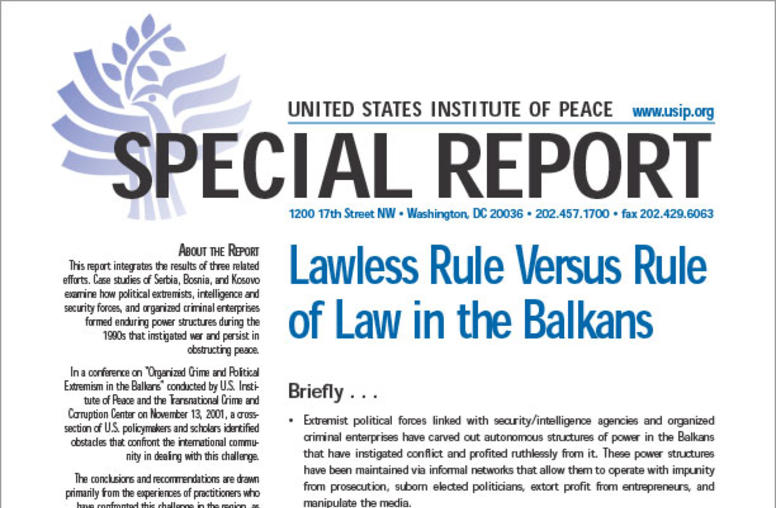
Lawless Rule Versus Rule of Law in the Balkans
This report integrates the results of three related efforts. Case studies of Serbia, Bosnia, and Kosovo examine how political extremists, intelligence and security forces, and organized criminal enterprises formed enduring power structures during the 1990s that instigated war and persist in obstructing peace.
Minorities and Refugees Web Links
Below are links by topical categories to resources primarily in English on issues regarding minority rights and refugee returns, with a focus on returning refugees to areas in the former Yugoslavia. For related web links, see Regional Resources: Europe. General Resources Government Agencies and International Organizations Maps and Guides Media and News Sources Research Centers and Resources Selected Documents and Peace Agreements These links complement two I...
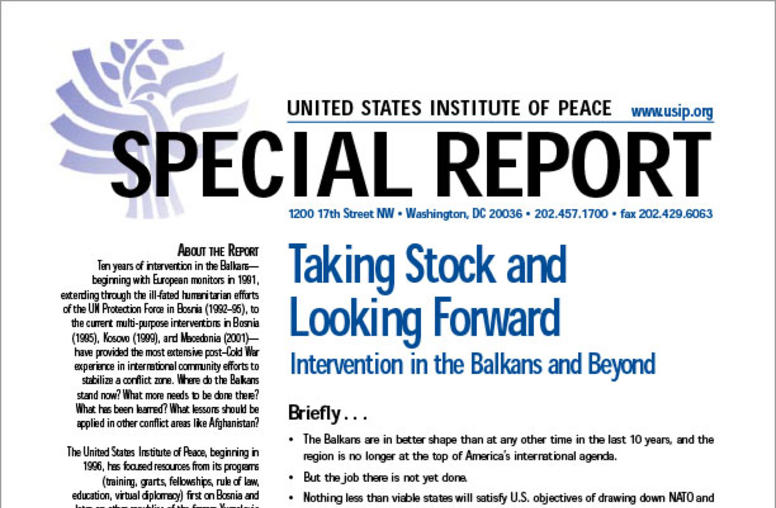
Taking Stock and Looking Forward: Intervention in the Balkans and Beyond
Ten years of intervention in the Balkans—beginning with European monitors in 1991, extending through the ill-fated humanitarian efforts of the UN Protection Force in Bosnia (1992–95), to the current multi-purpose interventions in Bosnia (1995), Kosovo (1999), and Macedonia (2001)—have provided the most extensive post–Cold War experience in international community efforts to stabilize a conflict zone. Where do the Balkans stand now? What more needs to be done there? What has been learned? What...
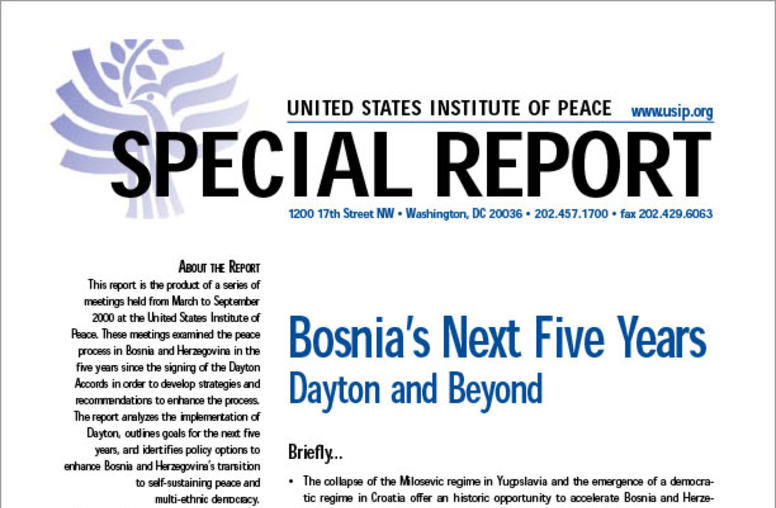
Bosnia's Next Five Years: Dayton and Beyond
The Dayton Upgrade Project at the United States Institute of Peace held a series of meetings to examine the peace process in Bosnia in the five years since the signing of the Dayton Accords. Subjects addressed included post-war security structures in Bosnia, institution building, economic restructuring, ethnicity, and nationalism.
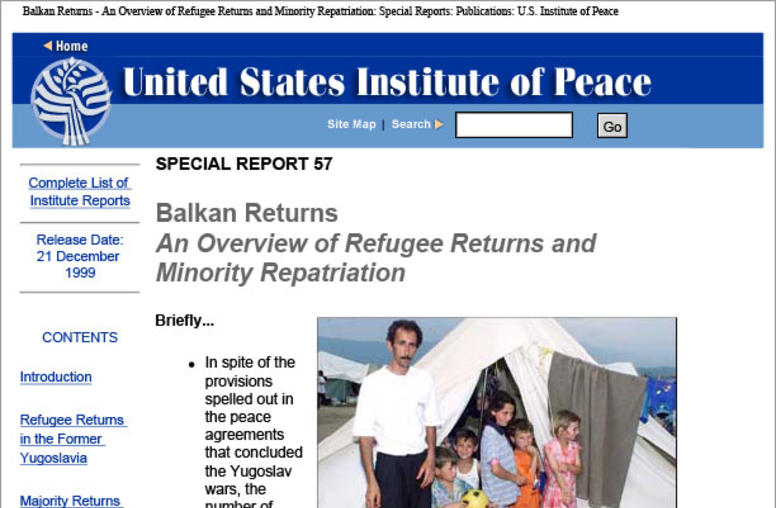
Balkan Returns: An Overview of Refugee Returns and Minority Repatriation
Summary In spite of the provisions spelled out in the peace agreements that concluded the Yugoslav wars, the number of minority returns throughout the former Yugoslavia is still low, indicating that there are considerable barriers to repatriation. The failure to draw refugees back to their towns and villages threatens the reconstruction of civic life, hinders the process of reconciliation and postpones the permanent conclusion of hostilities. The return of minorities is a regional m...
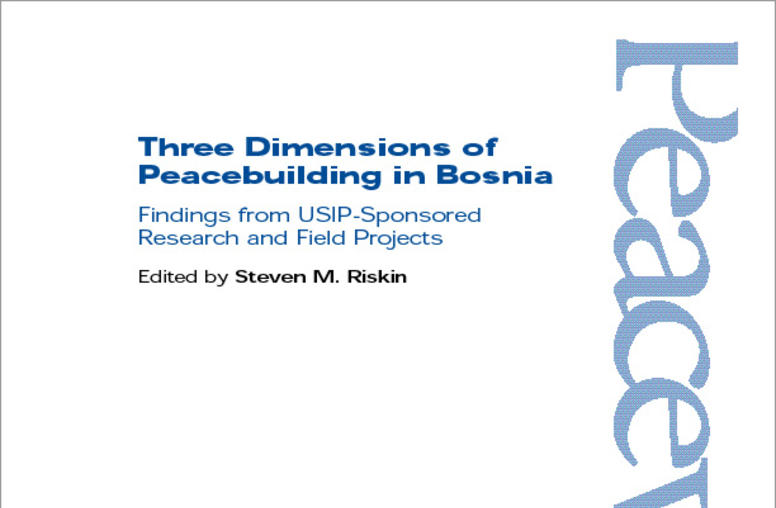
Three Dimensions of Peacebuilding in Bosnia: Findings from USIP-Sponsored Research and Field Projects
The purpose of this Peaceworks is to highlight some of the Institute-funded programs focusing on Bosnia and Herzegovina and to share some of the lessons gleaned from policy-related research covering foreign aid, human rights and rule of law, and programs devoted to reconciliation and civil society institutions in Bosnia.